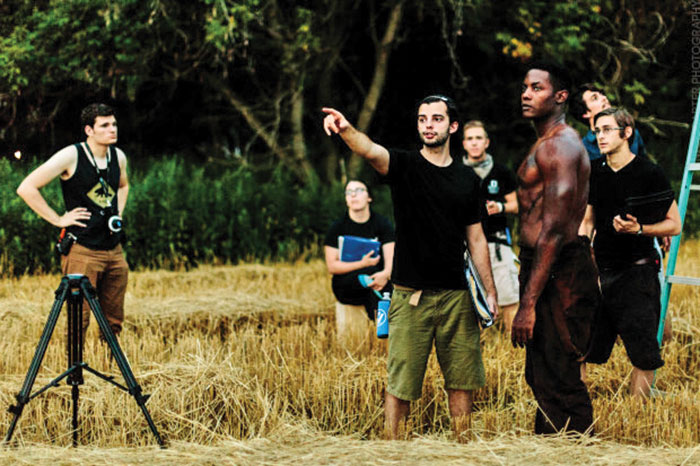
DEARBORN — A film production used Greenfield Village’s unique and historic scenery as a backdrop for its post Civil War-era plotline.
“Akoma”, a short film shot around the metro Detroit region with the assistance of local producers, actors and crew-members, recently wrapped its shoot after a summer production that highlighted Michigan’s ambiance.
“Akoma” is a dramatic thriller about two women who rely on their love for one another as they fight for their lives and for freedom.
Akoma, or Akoma Ntoso, is defined as the heart or linked hearts. From the Akan language of West Africa, it is a symbol of patience, tolerance, understanding and agreement.
Produced by Lunar Flame Pictures, the film is directed by Alex Gasparetto, a cinematographer, editor and director. Lucie Gillespie, a freelance writer-director from metro Detroit, also served as a writer and actress on the project.
For a portion of the film, scenes were shot at Greenfield Village in Dearborn. Cast and crew were able to use historic buildings from the 1800s as part of the set.

Chris Eckenwiler of Ortonville, an assistant director on the film, said that it took the filmmakers a while to get approval to shoot at Greenfield Village. Management at the historic museum and exhibit had previously had a bad experience with a film production and were at first hesitant to allow “Akoma” to film there.
However, board members at Greenfield Village liked the story and script and green lit the project under certain restrictions.
“The Greenfield Village was fantastic,” Eckenwiler said. “They gave us pointers on what would’ve been done back then. They let us use their buildings. We were shooting in a building that was actually built in the 1800s. The rules and regulations were very understandable and we were sure to preserve the history going on both on set and in the script.”
Shane Carson, a Detroit actor and co-producer on the film, said there’s a direct correlation between the film’s plotline and today’s political climate.
“I feel this film is a very timely piece,” Carson said. “With everything that’s going on in the U.S. right now, with all the racial strife and the injustice with the police and all of that stuff. The spine of the entire film is just based on love; love for the human condition and love for an improved human condition.”
Carson said independent productions are needed in the film industry, in order to allow creativity to flourish beyond the Hollywood studio system. He stressed the importance of enlisting talent and using locals to further a production that shoots on location.
“The studio system has been consumed with making remakes in the last 10 years,” Carson said. “Creativity is at an all time low for Hollywood studio films. I think it’s really important for the smaller indie filmmakers who are outside the studio system to create compelling content and put all their eggs into the script and story.”
Susu Tobia, a Jordanian American actress from metro Detroit, served as an associate producer during the production. She was responsible for casting extras for the film. Tobia highlighted the film’s diverse cast and crew.
“To work with a variety of talent really is a great experience,” Tobia said. “And that’s why I loved being a part of it.”

|
| Susu Tobia, a Jordanian-American Actress. |
Tobia said she encourages more Arab Americans to partake in the arts. She said Hollywood productions often miscast Arab roles, noting that Arab Americans’ participation is vital to depict an accurate representation of the community.
Tobia herself was cast to play a Mexican woman on another production.
“They cast people to play Arabs that don’t match the part,” she said. “People don’t realize how powerful the arts are in the Middle East. Arab artists need to get out there and show their talent and culture. That’s when I think other people will start to realize they are castable.”
Producers of “Akoma” are currently busy editing the film in post-production. They plan to submit the film at major film festivals, such as the Sundance Film Festival and the Toronto International Film Festival, in hopes that it gets screened early next year.






Leave a Reply